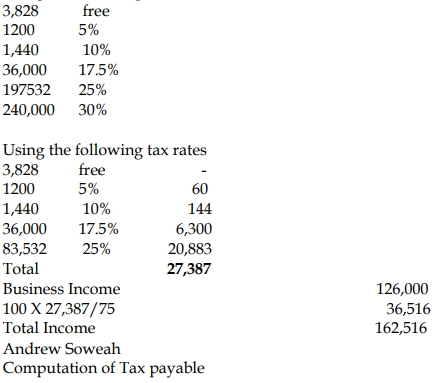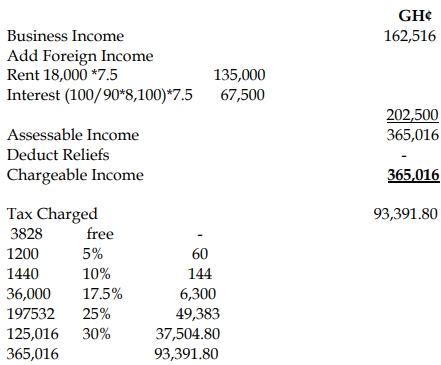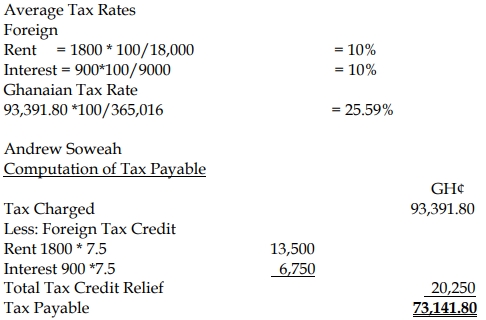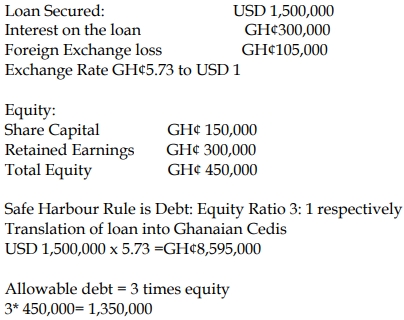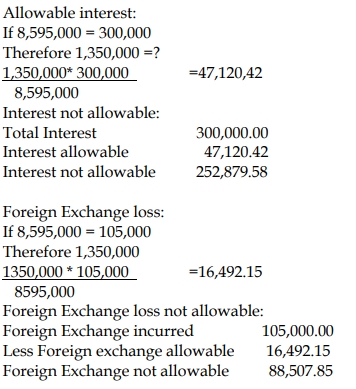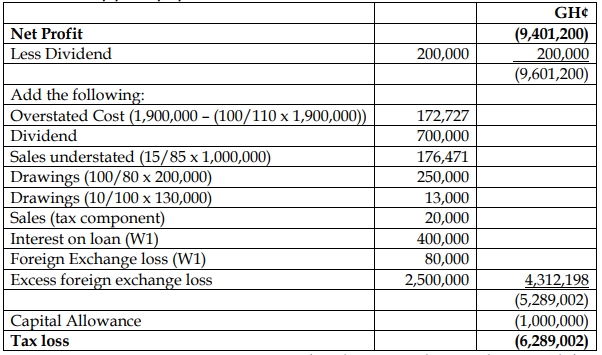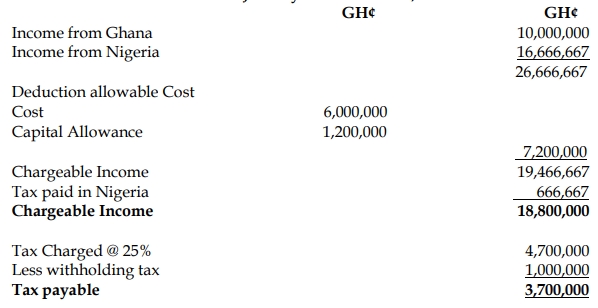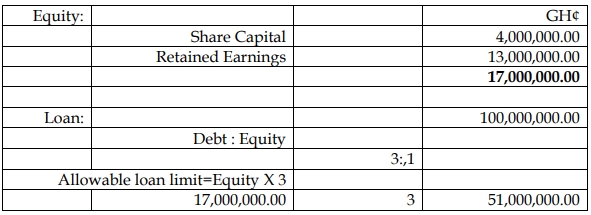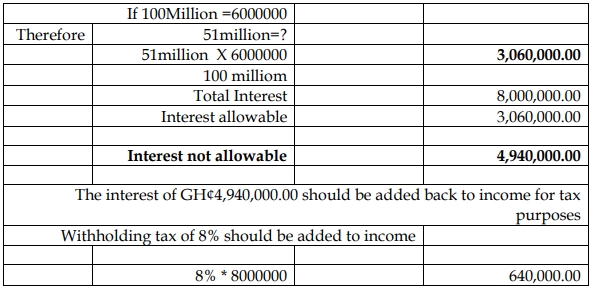- 6 Marks
Question
Orga Ltd has the following information relating to its operation as a Free Zone Enterprise for the 2020 year of assessment with a basis period from January to December each year:
| Description | Amount (GH¢) |
|---|---|
| Revenue | 35,000,000 |
| Cost | (21,000,000) |
| Profit | 14,000,000 |
Additional information:
- Depreciation of GH¢200,000 has been added to the cost above.
- Revenue: Local sales GH¢25,000,000; Exports GH¢10,000,000.
- The Managing Director was provided with a mini bar and a swimming pool as part of his employment package costing GH¢1,200,000 in his private residence. The employer added only GH¢200,000 as part of the employment income for tax purposes. The total cost has been adjusted to the cost above.
- The dividend received from the United States of America net of taxes of 10% was GH¢22,500. This income has not yet been recorded, although it has been credited in the bank statement.
- The excess proceeds from the sale of a depreciable asset over the written down value amount to GH¢300,000. This has not yet been recorded in the company’s accounts.
Required:
i) Compute the tax payable. (6 marks)
ii) Explain the tax treatment of the cost of the swimming pool and mini bar. (2 marks)
Answer
i) Computation of Tax Payable
| Description | Amount (GH¢) |
|---|---|
| Profit for the year (given) | 14,000,000 |
| Add back non-allowable expenses: | |
| Depreciation | 200,000 |
| Domestic expenditure (Swimming pool & minibar) | 1,000,000 |
| Adjusted profit | 15,200,000 |
| Add other income: | |
| Dividend (grossed up from GH¢22,500) | 25,000 |
| Excess of proceeds over WDV | 300,000 |
| Chargeable income | 15,525,000 |
Tax computation (Local sales and exports):
| Description | Local Sales | Exports |
|---|---|---|
| Chargeable income allocation | 11,089,285.71 | 4,435,714.29 |
| Tax rate | 25% | 15% |
| Tax payable | 2,772,321.43 | 665,357.14 |
| Total tax payable | GH¢3,437,678.57 |
ii) Tax Treatment of Swimming Pool and Mini Bar
The cost of the swimming pool and mini bar is considered domestic expenditure and is generally not allowable for tax purposes. However, since the company added GH¢200,000 to the Managing Director’s employment income, that portion is allowable for tax purposes. The remaining GH¢1,000,000 must be added back to the company’s income for tax purposes.
- Topic: Business income - Corporate income tax, International taxation
- Series: NOV 2021
- Uploader: Joseph

